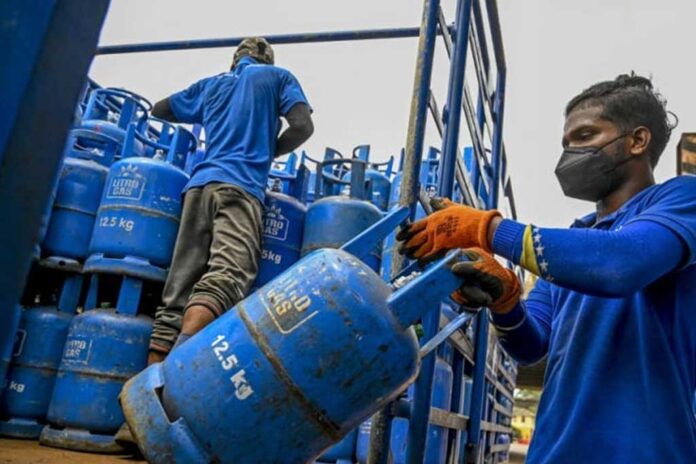Sri Lanka’s state-run Litro Gas has secured a supply of 90,000 metric tons of cooking gas for the last quarter of the year, officials said.
An official who requested anonymity said the company has secured 30,000 metric tons of liquid petroleum (LP) gas per month from October to December 2022.
With Sri Lanka going through its worst currency crisis in decades, monthly LP gas imports dropped significantly in the second quarter of the year, which greatly inconvenienced the public.
Prior to the crisis, the official said, Litro imported around 33,000 MT per month.
LP gas consumption by the general public has reduced by around 10-12 percent over the recent months, the official said, with consumers switching to alternatives such as kerosene stoves, firewood, rice cookers and induction cookers due to gas shortages and higher costs.
On October 05, the firm announced a drop in cooking gas prices after a reduction in global prices.
Litro Chairman Muditha Peiris said the reduction will allow for a return to the convenience of using cooking gas.
“No matter how many alternatives there are, whether it’s firewood or kerosene or electricity, if you calculate the total, using gas prudently is more profitable,” he said.
The new gas consignments are received on a weekly basis and there are no delays at present, an official said.
Going forward the firm expects to create a supporting mechanism for the payments of the shipments by combining the state banks, the treasury and a smartphone app that expatriates can use to purchase gas for their families back home, payable in US dollars.
With more people using the app, the firm expects to cover the payments of at least two consignments from the forex generated from the Litro app, the official said.
Upon securing a steady supply, Litro immediately implemented a new sales strategy using locations such as playgrounds and other sites where a large number of customers could gather and purchase the product with ease.
In yet another strategic breakthrough moves, Peiris implemented a shift from fixed to formula pricing, which has enabled Litro to be self-sustainable whilst passing on the real market value benefit to the customers themselves.
Litro has also developed their mobile application with a global payment gateway. This feature is intended to reduce the dollar burden of Litro on the treasury and strengthen Litro’s own sustainability.
He said “We have secured a short-term LPG contract for 100,000MT and floated a term contract for one year and this is already in the process with bank credit lines secure to service the one-year contract.”
A major aspect of Litro’s strategy involved taking a scrutinised look at each aspect of their operations. As such, the company placed an emphasis on devising and maintaining an uninterrupted supply chain, along with building strong partnerships with suppliers.
Peiris stated that the company is now closely monitoring its distributor network to ensure products are received by the end customers.
Litro has further set up a 24/7 CSC call centre that is well-equipped to handle requirements as well.
